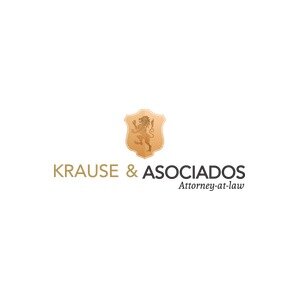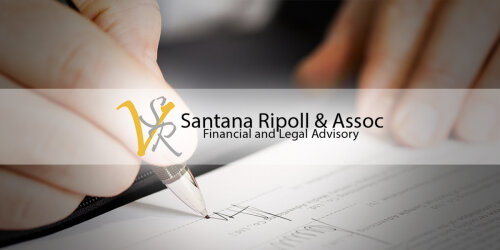Best Trademark Lawyers in Puerto Plata
Share your needs with us, get contacted by law firms.
Free. Takes 2 min.
List of the best lawyers in Puerto Plata, Dominican Republic
About Trademark Law in Puerto Plata, Dominican Republic
Trademark law in Puerto Plata, Dominican Republic is governed by both national legislation and international agreements which the country is a part of. The primary goal of trademark law is to protect the distinctive signs that distinguish goods or services in the marketplace. These signs can include words, phrases, logos, symbols, and even sounds that identify the source of a product or service. In Puerto Plata, as in the rest of the Dominican Republic, trademarks are registered with the National Office of Industrial Property (ONAPI), which is responsible for the administration of intellectual property rights, including trademarks.
Why You May Need a Lawyer
Engaging a lawyer for trademark-related matters in Puerto Plata, Dominican Republic, can be crucial in various situations, including:
- Brand Protection: Ensuring that your trademark is unique and adequately protected against infringement.
- Registration: Navigating the procedures for registering a trademark with ONAPI.
- Trademark Infringement: Defending against unauthorized use of your trademark or pursuing actions against infringers.
- Renewals and Maintenance: Ensuring compliance with legal requirements, such as timely renewals to maintain trademark rights.
- Business Transactions: During mergers, acquisitions, or licensing deals, it’s important to appropriately handle trademark rights.
- Dispute Resolution: Handling disputes regarding trademark validity and usage, either in negotiation or litigation.
Local Laws Overview
In Puerto Plata, trademark law falls under the broader legal framework of the Dominican Republic. Some key aspects include:
- Law No. 20-00 on Industrial Property: This law provides the overarching legal foundation for trademark rights and procedures in the Dominican Republic.
- Distinctiveness: Trademarks must be capable of distinguishing goods or services from those of competitors and should not mislead consumers.
- Registration System: Trademarks are registered with ONAPI, which reviews applications to ensure compliance with legal criteria.
- Opposition Proceedings: Third parties may oppose a trademark application if they believe it infringes upon their established rights.
- Duration: A registered trademark is valid for 10 years from the date of application and can be renewed indefinitely for successive 10-year periods.
- Cancellation and Nullity: Interested parties can request the cancellation or nullity of a trademark registration under certain conditions, such as lack of use.
Frequently Asked Questions
What is a trademark?
A trademark is any sign capable of distinguishing the goods or services of one enterprise from those of another. It can include words, designs, letters, numerals, colors, or any combination thereof.
How do I register a trademark in Puerto Plata?
To register a trademark in Puerto Plata, you’ll need to submit an application to ONAPI, which includes providing detailed information about the trademark, the goods or services it will cover, and proof of payment of the registration fee.
How long does the trademark registration process take?
The registration process can vary in duration, but it generally takes several months to complete, assuming there are no challenges or oppositions.
Can I trademark a common word or phrase?
Common words or phrases can be registered as trademarks if they have acquired distinctiveness and do not describe the goods or services directly.
What happens if someone opposes my trademark application?
If an opposition is filed against your trademark application, you will have the opportunity to respond, and the matter will be reviewed by ONAPI.
How do I enforce my trademark rights?
If you believe someone is infringing your trademark, you can take legal action, which may include cease and desist letters, negotiation, or court proceedings to enforce your rights.
What is the difference between a trademark and a copyright?
A trademark protects brand identifiers like names and logos, while copyright protects original works of authorship, such as books, music, and art.
Can I sell or license my trademark?
Yes, you can sell or license your trademark to others, which can be a strategic business decision to expand or monetize your brand.
What happens if I don't use my trademark?
If a trademark is not used for a continuous period (typically 3-5 years), it may be subject to cancellation for non-use.
Can a foreigner register a trademark in the Dominican Republic?
Yes, foreigners can register trademarks in the Dominican Republic, but they are required to have a local representative to facilitate the process.
Additional Resources
For further assistance with trademark matters, consider reaching out to the following resources:
- National Office of Industrial Property (ONAPI): As the primary administrative body for trademarks, ONAPI provides resources and guidelines for trademark registration and protection.
- Chamber of Commerce and Production of Puerto Plata: Offers support and guidance for local business owners, including advice on intellectual property matters.
- Local Legal Firms Specializing in Intellectual Property: Many local law firms specialize in trademark law and can provide personalized legal advice.
Next Steps
If you need legal assistance in trademark matters, it's important to act promptly. Consider the following steps:
- Consult with a Lawyer: Seek advice from a lawyer specializing in intellectual property to assess your situation and options.
- Gather Documentation: Collect all relevant documents, including any existing trademarks, logos, and records of usage.
- Prepare a Plan: Work with your lawyer to develop a strategy for registering your trademark, addressing potential infringements, or defending against legal challenges.
- Stay Informed: Keep up-to-date with changes in trademark law and ensure compliance with filing deadlines and requirements.
Lawzana helps you find the best lawyers and law firms in Puerto Plata through a curated and pre-screened list of qualified legal professionals. Our platform offers rankings and detailed profiles of attorneys and law firms, allowing you to compare based on practice areas, including Trademark, experience, and client feedback.
Each profile includes a description of the firm's areas of practice, client reviews, team members and partners, year of establishment, spoken languages, office locations, contact information, social media presence, and any published articles or resources. Most firms on our platform speak English and are experienced in both local and international legal matters.
Get a quote from top-rated law firms in Puerto Plata, Dominican Republic — quickly, securely, and without unnecessary hassle.
Disclaimer:
The information provided on this page is for general informational purposes only and does not constitute legal advice. While we strive to ensure the accuracy and relevance of the content, legal information may change over time, and interpretations of the law can vary. You should always consult with a qualified legal professional for advice specific to your situation.
We disclaim all liability for actions taken or not taken based on the content of this page. If you believe any information is incorrect or outdated, please contact us, and we will review and update it where appropriate.









